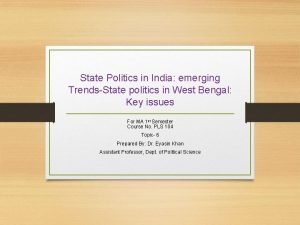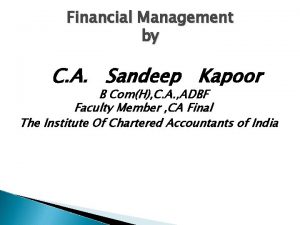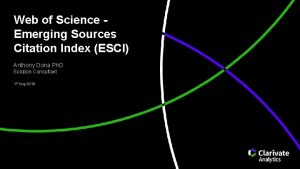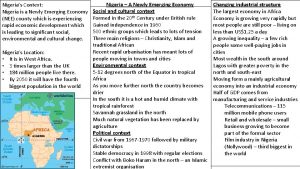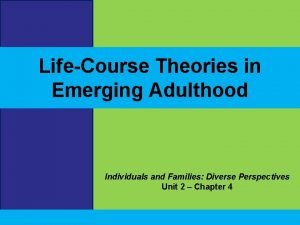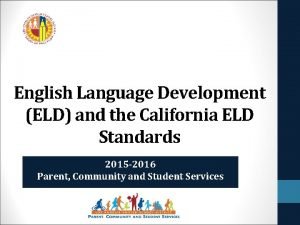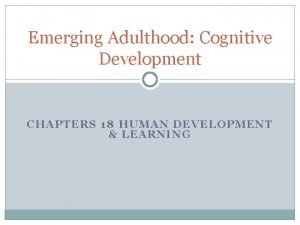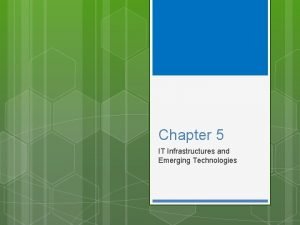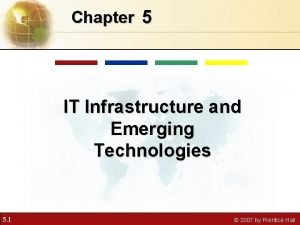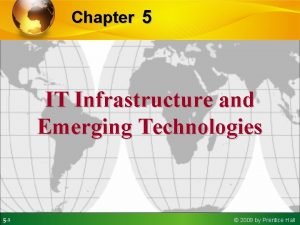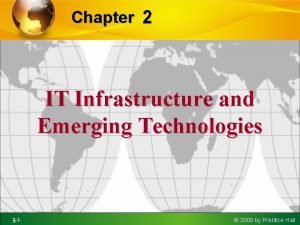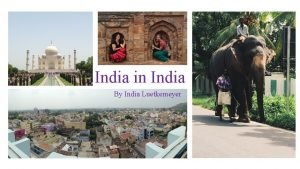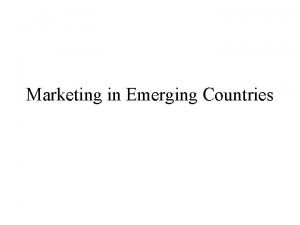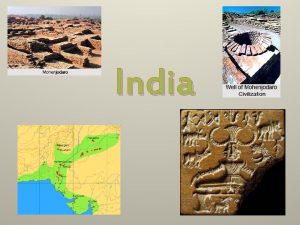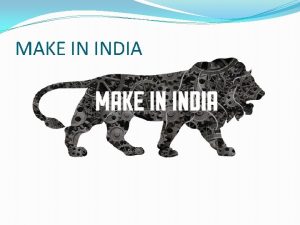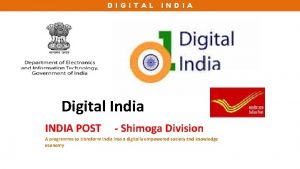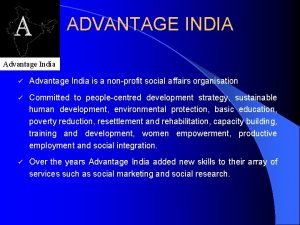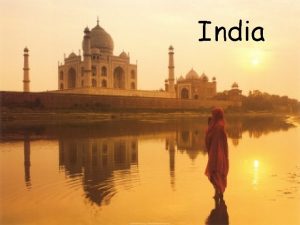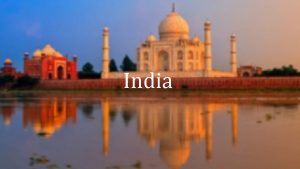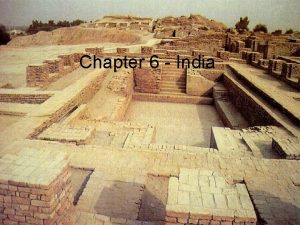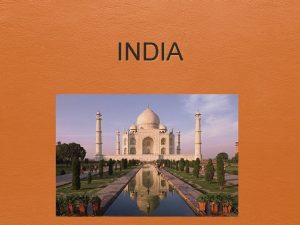State Politics in India emerging TrendsState politics in





















- Slides: 21

State Politics in India: emerging Trends-State politics in West Bengal: Key issues For MA 1 st Semester Course No. PLS 104 Topic- 6 Prepared By: Dr. Eyasin Khan Assistant Professor, Dept. of Political Science

Key components • • Significance of State politics Theorization of state politics Determinants of State Politics in west Bengal

Significance of state politics • An analytical study of politics in the Indian states is long overdue. • With the ending of the “Congress system” trends towards the regionalization of Indian politics have become more manifest, and the states have become increasingly important and powerful units of the Indian political system. Some scholars have considered them as separate political systems.

Continued… • It can be argued that our very understanding of the Indian political system depends upon our assessment of patterns of political development within the constituent states. • In India, the state governments are the real governments in the context of public welfare. The Central Government’s role in development administration is primarily that of leadership, consultation and advice. The responsibility for the implementation of programmes rests mainly on the states.

Continued… • No doubt every state in India follows a parliamentary system of democracy, with the permanent civil service accountable to the elected representatives of the people. In practice, however, we witness many deviations in the behaviour of the political institutions because of the compulsions of specific situation obtaining in the various states. In fact the states of the Indian Union have diverse profiles.

Continued… • The state serve as implementing agencies for national development plan. • In a sense the state governments play an unusual middle role. They are in touch with both the central government and the district and sub-district government units and officials. • Since states perform most of the traditional functions of Governmental units and deal with subjects having direct, immediate and intimate impact on the fortunes of the citizens, state politics has an obvious and tangible objective relevance.

Continued… • A systematic study of state governments and politics is necessary for acquiring knowledge of the organizational set-up of the government machinery in the states, and their functioning. • The states of the Indian Union share a common legal system, a common constitutional framework, a common administrative structure and a common international environment, but their internal political patterns vary considerably.

Theoretical Framework • A word “theory” or “theoretical framework” is full of ambiguity. It is often employed as a system synonym for a thought, a conjecture or an idea. • To some people theory means an interpretation or a point of view, whereas others would view it as the consummation of explanation.

Continued… • There is a little disagreement, however, on the view that the main function of theory is explanation. But the difficulty arises from the fact that there is no clear agreement on the question as to what should be explained and what can be explained. The difference of opinion on this question is specially important to theory of state politics.

Continued… • A framework (Paradigm) is needed to identify and articulate the points of study and research in the panorama of state politics in India and to encourage scientific investigations into the web of state politics, which may ultimately lead to the emergence of a possible theory of state politics.

Continued… • It is indeed a very difficult job to provide a theoretical framework for the study of state politics in India because in India there is not one pattern but many patterns of state politics. Furthermore, since India is a transitional society, its politics tends to be in a process of flux and change. • The polarization of political forces has not freely taken place and therefore the job for providing theoretical framework becomes all the more difficult.

Continued… • Scholars engaged in the study of Government and politics in India have examined the political forces and internal political pattern at the state level with national perspective. Although a large number of case studies have been conducted on the various aspects of state politics, yet many authors in the field have been content to describe the formal structural and legal aspects of state government on the pattern of national political system.

Conceptual framework • Myron Weiner (1968) State politics in India a. The socio economic environment in which politics occurs b. The performance of the government. § S R Maheshwari (1979) State Government in India

Three dimensional framework • • Iqbal Narain (ed. ) State Politics in India Contextual Structural Operational • Iqbal Narain “Issues in State Politics and Administration” • Latent Phase • Bridge Phase and Patent Phase

Continued… • Ø Ø Ø Contextual dimensions : History of a State Historical identity of a state its political status before independence its role in the freedom struggle the impact of integration of princely states or of linguistic reorganisation the geographical locale infrastructure manifesting itself in social pluralism the level and pattern of economic development human resources the level of education and urbanisation.

Continued… • The structural Dimension: Ø Consists of formal constitutional structure – ü Office of the Governor, ü Office of the Chief Minister, ü the Ministry and the Legislature, Ø Political Institutions and Processü Political Parties, ü Pressure group and elections, ü and administrative framework.

Continued… • Operational Dimension: üThe role-orientation of the actors in the drama of state politics § Behavioral aspect § Functional Aspect

Determinants of State Politics • • Constitutional Determinant Economic determinant Socio-cultural determinant Bureaucracy as a determinant Physiological determinant Geographical determinant Political determinants

Salient features of State Politics • Amalgamation of Traditional and Modern • • Language Caste is a dominant factor in state politics The competitive party system Political participation Factionalism Occupational interests play a stronger part Segmental politics Defections and state politics

Refernces • Myron Weiner (ed. )(1968) State Politics in India • Babulal Fadia (1984) State Politics in India • S R Maheshwari (1979) State Government in India • Ashutosh Kumar(2011 ) Rethinking State Politics in India: Regions within Regions

Thank You
 Explain emerging patterns of state politics in india
Explain emerging patterns of state politics in india Emerging role of financial manager in india
Emerging role of financial manager in india Emerging challenges of industrial relations in india
Emerging challenges of industrial relations in india Bureaucracy and politics in india
Bureaucracy and politics in india Action for social advancement (asa)
Action for social advancement (asa) Esci web of science
Esci web of science Emerging technology synthesis
Emerging technology synthesis Emerging trends in community development
Emerging trends in community development Emerging adulthood psychosocial development
Emerging adulthood psychosocial development Emerging proficient extending
Emerging proficient extending Deca prepares the next generation to be
Deca prepares the next generation to be Is nigeria a newly emerging economy
Is nigeria a newly emerging economy Levinson's stages
Levinson's stages Constructive conversation skills poster
Constructive conversation skills poster Emerging trends meaning
Emerging trends meaning Emerging database
Emerging database Emerging adulthood cognitive development
Emerging adulthood cognitive development Emerging technology chapter 5
Emerging technology chapter 5 Chapter 5 it infrastructure and emerging technologies
Chapter 5 it infrastructure and emerging technologies Emerging technology chapter 5
Emerging technology chapter 5 Chapter 5 it infrastructure and emerging technologies
Chapter 5 it infrastructure and emerging technologies Arts in emerging europe
Arts in emerging europe
